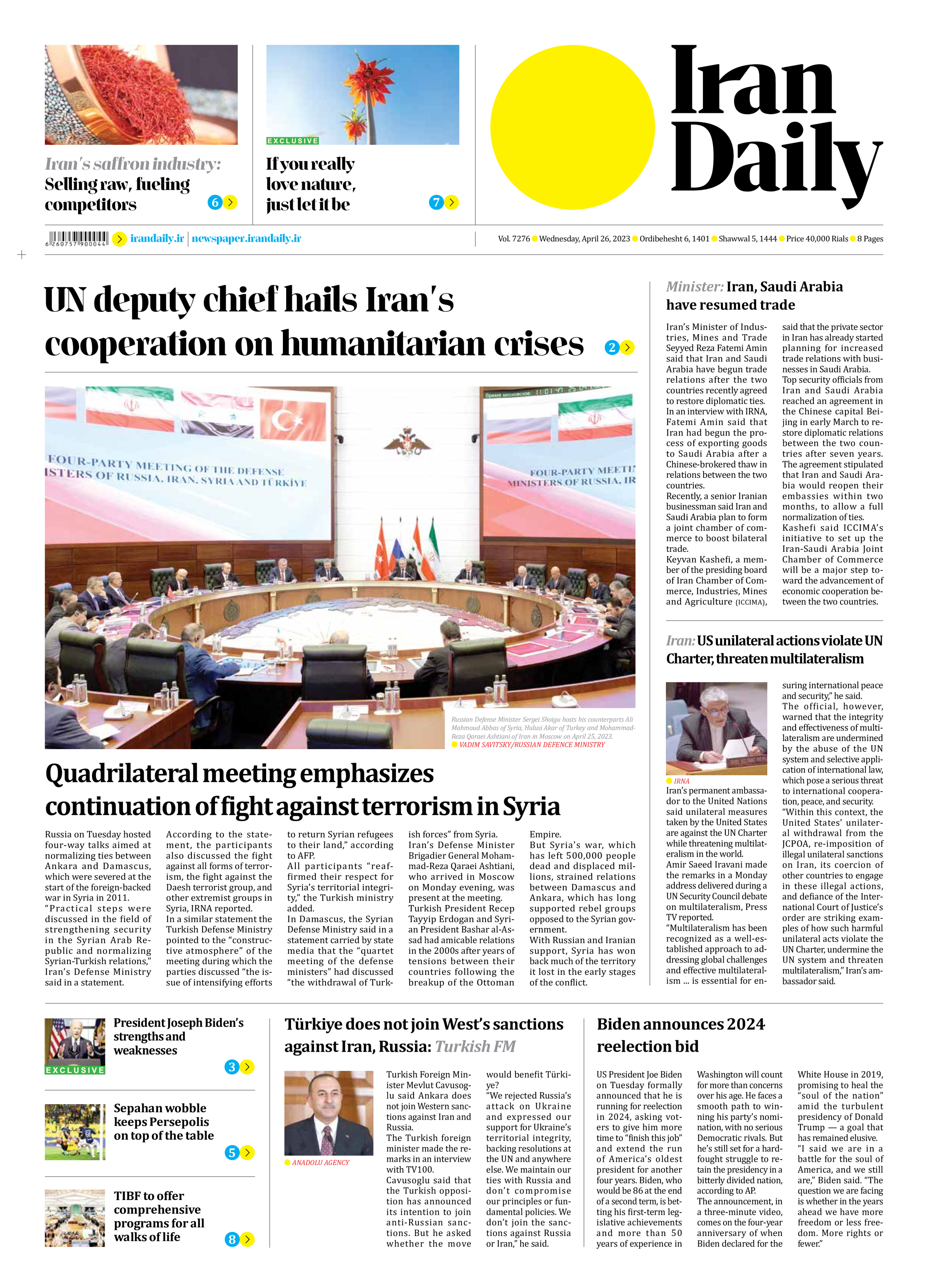
UN deputy chief hails Iran’s cooperation on humanitarian crises
UN Undersecretary-General for Humanitarian Affairs and Emergency Relief Coordinator Martin Griffiths, who is in Tehran, met with Iran’s Foreign Minister Hossein Amir-Abdollahian and Senior Adviser to the Iranian Foreign Minister for Special Political Affairs Ali Asghar Khaji.
During his meeting with Khaji, both sides discussed the latest developments in the region, especially the restoration of relations between Iran and Saudi Arabia, humanitarian problems in Syria and Yemen, and the peace prospect in the region.
Referring to the existing security and political system in Syria, Khaji described the economic problems and the critical humanitarian situation in Syria, especially after the recent earthquake, as the country’s most pressing issue. He further stressed the need to increase and speed up the transfer of humanitarian aid to the country at the regional and international levels.
As for Yemen, Khaji described the recent talks in Sana’a as positive, adding that more than 20 million Yemenis urgently need help. He also called for the international community to speed up its efforts to tackle humanitarian problems in Yemen.
Griffiths, for his part, noted that the recent agreement between Iran and Saudi Arabia to resume bilateral relations has had positive implications for regional developments and for advancing the peace process. He underlined the significance of the participation and assistance of regional countries in meeting the humanitarian needs of the Syrian and Yemeni people.
Later, the UN official met Amir-Abdollahian. During the meeting, both officials exchanged views on various regional and international issues.
After the meeting, Griffiths held a press conference to elaborate on the outcome of his talks in Tehran.
During the press conference, the UN official said his meetings in Tehran were “constructive,” expressing hope that interactions between Tehran and UN would continue.
Griffiths said, “The minister of foreign affairs and the government of the Islamic Republic of Iran have had close relations with us regarding the preparation and response to humanitarian disasters. We hope to witness the expansion of relations as much as possible. A clear evidence of the expansion of our relations were the events and actions we took during the earthquake that recently occurred in Syria and Turkey.”
The UN official went on to note that another issue that he discussed was the capacities that both sides must realize in order to witness the permanent truce in Yemen and to be able to bring prosperity, peace and stability to the people of this country.
Discussing the humanitarian aid carried out by the United Nations in Afghanistan, the official said that, so far, countries have pledged to donate $4.6 billion to Afghanistan, which is “the largest amount of humanitarian aid to any country in the world,” adding that considering the extraordinary conditions of Afghanistan, it is not surprising that 16 million people in Afghanistan need humanitarian assistance.
“We made a clear request from the donor countries. We also reminded the Taliban of their responsibilities. They also have a responsibility regarding women’s rights and must ensure that the right to work, play, education, and activism of Afghan women and girls is fully respected and protected. Women should be activists and it is through this interaction and activism that we can reach out to the women and girls of Afghanistan.”







